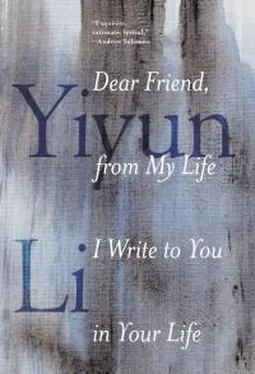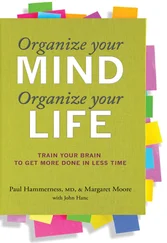On a different trip—much later than the London trip—I ran into Portia at the train station on my way to visit Monet’s garden at Giverny. Displayed on a bulletin board, advertising an exhibition, was The Portrait of Marguerite van Mons by the Belgian painter Théo van Rysselberghe: a black-clad girl, about to open an ornate door, stares out of the painting (or is she closing the door to secure her presence in the room—an entrance rather than an exit?). Thousands of people must have passed through the station that summer, but not many would have recognized Portia—the painting is used as the cover of my paperback edition of The Death of the Heart —exiting a drawing room: “Each movement had a touch of exaggeration, as though some secret power kept springing out. At the same time she looked cautious, aware of the world in which she had to live. She was sixteen, losing her childish majesty.”
Portia, newly orphaned, is sent to live with her half brother, Thomas, and Anna, Thomas’s wife. An orphan is always a melodrama, but Portia is among the most unbearable. Her whole self exposes others’ inability to see in life a seriousness that can match hers. She watches the world with an awkward tenacity. Observation, however, is not understanding; neither is it protection. For Portia, every moment is conclusive and catastrophic, and the distinctions between then and now and later are wiped out by her insistence on making every moment as meaningful and definite as life is often not. I feel an annoying kinship with Portia—I bat at such a thought like batting at a fly. To say nothing matters is to admit that everything matters. Like Portia, I too struggle with a lack of depth perception.
Willful, a friend says of Portia; willfully selfish. Indeed, The Death of the Heart is a study of selfishness, but great fiction is inevitably a study of selfishness. Some selfishness is more commonplace than others, some more respectable, or more destructive, or more cynical. There is Portia’s father, whose timorous selfishness is a contrast to his first wife’s castigating selfishness. (He is exiled by his efficient wife into marrying his mistress when she becomes pregnant with Portia.) There is Eddie, who, in his prideful selfishness, destroys Portia’s life. (Eddie, a cad with wounded innocence as his core, needs someone to prey on more than a heartless one would.) Thomas and Anna seek convenience in their tidy selfishness, and when they find themselves trapped in Portia’s melodrama, even their cold, sensible egos cannot restore their life to being lived on the surface.
Some people, knowing the boundaries of their selves, choose to disregard what is beyond as inconsequential. Such selfishness may not be honorable, though one has to admire the honesty when Anna admits to reading Portia’s diary. “No, it’s not at all odd: it’s the sort of thing I do do,” she says, neither with remorse nor in self-defense.
Portia and Anna, one of Bowen’s lovers surmised in his diary, were “the two halves” of Bowen, one with “the naïvety of childhood—or genius,” the other “as an outside hostile person might see her.” Bowen’s genius is that, by setting the two halves against each other, she makes herself invincible.
Bowen’s cruelty toward her characters cannot be distinguished from her indulgence. Anna sets her heart to eliminate all emotion. Portia wants nothing but for all people to be softened by feelings—hers about them and theirs about her. If Anna were not so merciless in depriving herself of any real connection, we would lose respect for her. If Portia were not so transparent with love—unsought and unearned—we would be protective of her. Bowen manipulates us to feel most for Anna when she is her coldest self, and exposes us when we take the side of the heartless world to deny Portia the dignity of suffering.
Bowen left no diaries or journals. Perhaps none survived, and one wonders what she would have recorded writing strictly to herself. Or perhaps she was not in the habit of writing something so private and revealing—another reason I feel a kind of antagonism toward her. I feel the necessity of confronting her when I write, as though only by matching what she does can I protect myself from her. What innocence Bowen destroys in her novels I want to destroy with equal resolve. What selfishness Bowen indulges I want to indulge. What violence—psychological more than physical—Bowen makes her characters suffer I want my characters to inflict and endure too. Portia is exposed and betrayed at her most vulnerable moments, and Bowen allows no help from others or herself; it is with the same satisfaction that I have little sympathy for my younger self sitting by a lake with deadly thoughts on a winter day. No, I have sided with the young men riding past her on their bicycles and goading her to jump into the water, with the woman stepping into the courtyard and shooing her away, with the mother who watched the clock and informed her exactly how many minutes late she arrived home, exhausted by indecision.
“I don’t know what’s going to happen; but I do know what’s capable of happening,” Seneca wrote in a letter. The terror of that statement is why I write myself into a battle against Bowen—not to converse, which seeks understanding; not to argue, which is intellectual; not to confront, out of artistic disagreement, or misunderstanding, or even jealousy, but to hold on to something essential. “[I am] a writer before I am a woman,” she said of herself. Easily I could assert a more absolute position, being a writer before I am a person, or being a writer and nothing more. Bowen makes me aware of what I am capable of becoming; her characters make me aware of what everyone is capable of becoming. This knowledge is what turns me against her yet brings me back to her work. “The moment one is sad one is ordinary,” she wrote. But that is not enough. The moment one feels anything one feels fatal.
—
WHEN LARKIN, AT twenty-eight, compared himself to Eddie or Portia’s father, it must have been a statement made from both self-loathing and self-defense. What awareness, what resignation, what passive-aggressiveness led him to write the letter.
“My life is so entirely selfish that mirages of unselfishness tormented me,” he wrote to Jones later, again explaining his lack of commitment.
I long to abandon myself entirely to someone else. The peculiarity of my character is that I never feel that there is
any
mingling—either I don’t “abdicate,” & the other person loses, or I do, and I lose myself. A monstrous infantile shell of egotism inside which I quietly asphyxiate. To read K.M.’s [Katherine Mansfield’s] dreams of a shared life with Murry—this perturbs me greatly….To live quietly and complementarily with another would be extraordinary—almost impossible—I don’t know, it’s only the fact that I do nothing for anybody that promotes these self-searchings.
The opposite of this extreme charge is that a person does everything for others—an exemplary unselfishness familiar to me all my life. It encapsulates my mother’s existence. Before retiring she was a schoolteacher, respected by generations of students and their parents because everything she did, she did for them. My mother is the first person I observed at a close distance, too close perhaps, whose public and private personas have so little in common.
If a person is not living for others, it does not mean he knows how to live for himself. One prefers anyone—a mother, a lover, a friend—who knows how to live for herself. Such knowledge is not selfishness.
Twenty-two years after comparing himself to Portia’s Eddie, Larkin was not in any better place.
I’m not so confident about telling the truth as you: not so sure I can, not so sure I want to. I cling to pretence….You
Читать дальше












